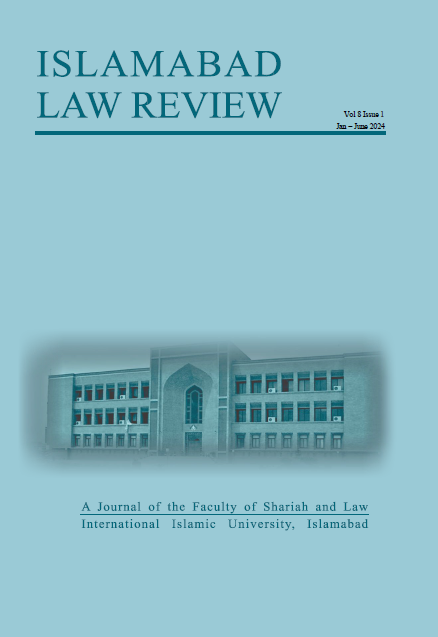An Analytical Study of Compliance of Banking Institutions of Pakistan with Anti-Money Laundering Regulations: Legal Challenges and a Way Forward
الملخص
The primary aim of this paper is to analyze the compliance of banking institutions in Pakistan, with international and domestic anti-money laundering (AML) regulations. Recently, at least 6 Pakistani banking institutions have been implicated in an investigation involving money laundering. Moreover, the US State Department has designated Pakistan as a State of Special Attention for laundering money and suspicious transactions. For this research, doctrinal legal research methods are used to critically examine the statutes, regulations, policies in Pakistan alongside international laws, treaties, conventions and other existing data requiring banking institutions’ compliance with AML regime. Money laundering has a negative impact on the economic growth of the country through boosting the underground economy and criminal enterprises. The strict banking secrecy is major obstacle for banking institutions’ compliance with the anti-money laundering regulations. Banks prioritize interests of their clients over compliance with regulations. The lack of any major penalties such as fines or imprisonment for the employees in case of non-reporting, absence of use of innovative technology and absence of any profound whistle-blowing policies also helps criminals to exploit the banking institutions systems for laundering money. The paper provides new perspectives into assessing banking institutions' compliance with all applicable anti-money laundering standards.


